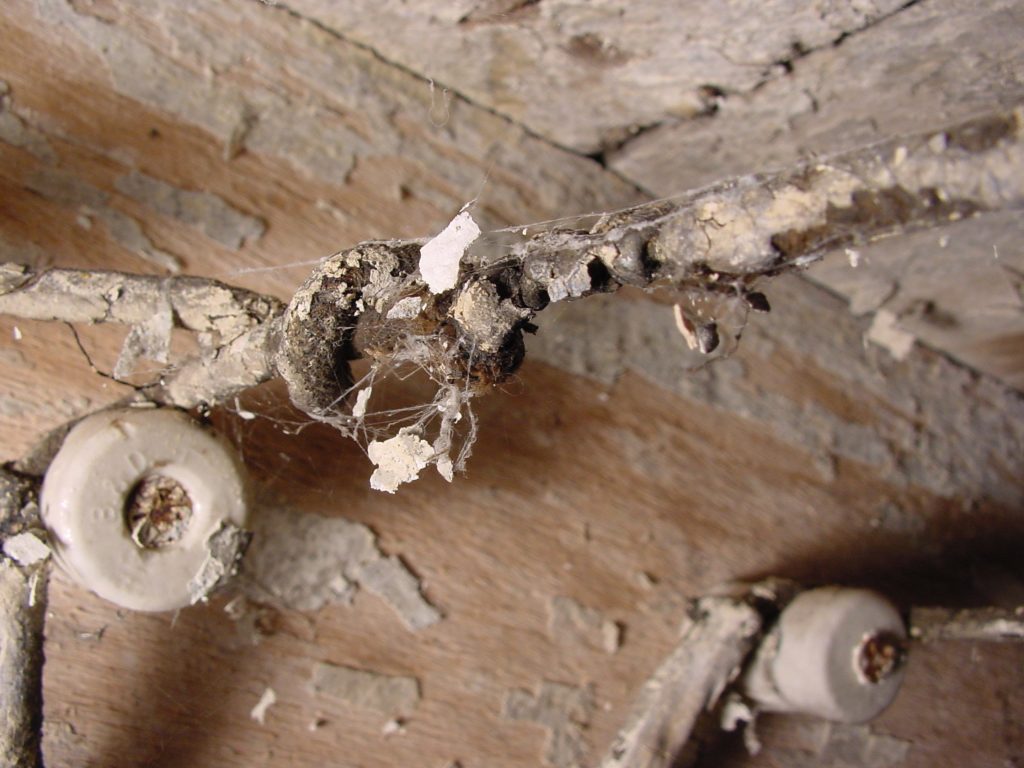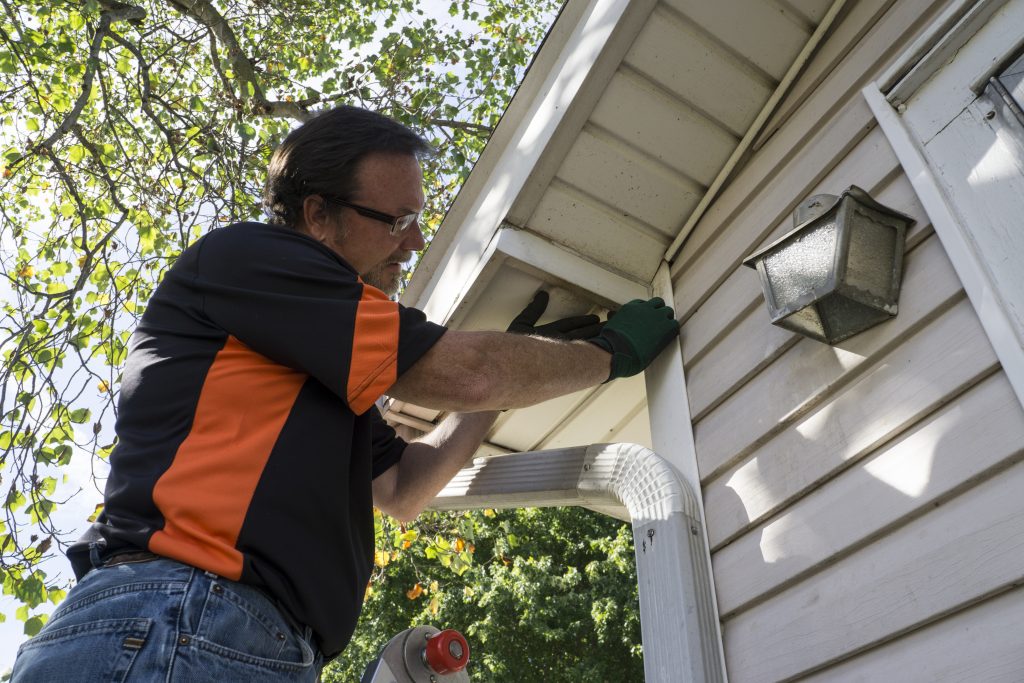Inspecting a home is all about knowing the important details, looking closely at them, them making a report. There is a huge difference in the quality of home inspections because there’s a huge difference in how people can become “registered” home inspectors.
- Reading Time = 6 minutes
How to Choose a Home Inspector
Hiring a home inspector is a lot like buying organic food. You need to look behind the label to see exactly what you’re getting. Not every “organic” apple comes from the Garden of Eden, and not all “certified” home inspectors are the kind of people you should trust when laying out hundreds of thousands of dollars on a home purchase.
As it turns out, North America has some of the best home inspectors in the world. Trouble is, not everyone in the business measures up, even if they might seem to. Far from it. That’s why you need to be careful in very specific ways as you select a home inspector. The best are trained to help you choose a resale home wisely, but that’s not all. Careful home buyers also have new homes professionally inspected before they sign off on their purchase. The construction errors you’ll occasionally find in brand new houses are astonishing. A good home inspector will help you find home problems, but only if you choose the right kind of inspector.
But I may be getting ahead of myself, since you need to have a place in mind to buy before you’ll need an inspector. It’s getting easier to find a home worth buying thanks to new types of online search tools. Windsor Court Villas at Palmetto Dunes, for instance, is one example of the kind of results that come up during a search.
The most common home inspection designation you can trust in Canada (my home country), is called RHI (registered home inspector), and in the US it’s ACI (ASHI certified inspector). Other countries around the world may have equivalent designations. These letters (RHI and ACI) are distinctions that not just anyone can claim. They really mean something, and only inspectors who’ve fulfilled specific requirements can legally used these designations. So what does a person have to do to become an ACI or RHI? Quite a bit.
Requirements include completion of a series of baseline courses, technical background in the building field and successful completion of hundreds of actual home inspections and reports that have been examined and verified by an independent committee of experts. The Canadian Association of Home and Property Inspectors (CAHPI; 888-748-2244) acts as a clearinghouse of information for locating RHIs in Canada. The American Society of Home Inspectors does the same thing in the US (ASHI; 847-759-2820). Both can help you find registered inspectors working in your area, and they’ll also help you become a proper home inspector if you want a new career.
By comparison, how much faith would you put in a home inspector with a ‘certification’ they received through self-administered tests taken on the Internet and optional courses taken if and when they like? That’s the reality behind many professionals in the home inspection business these days. Watch out. Ask questions. Who has actually verified these people are as skilled, diligent and professional as they say they are?
Then there are the home inspection cowboys with no certification at all. They’ve been “doing inspections for years”, and somehow that’s supposed to make them good. But why take their word for it, when you can have an independently verified professional on your side? I know many people in both trade jobs and in offices who have been doing their work for 30 years and are still quite bad at it. Longevity is never a reliable indication of quality.
Right now the home inspection business continues to evolve in Canada, the country where I live, with a an initiative called the National Certification Program (NCP). The origins of the NCP stretch back to 1996 when a report was issued by Canada Mortgage and Housing Corporation (CMHC). It uncovered noteworthy inconsistencies in the skill and diligence of home inspectors across the country, and that led to action by government and industry stakeholders. Right now inspectors certified as National Certificate Holders (NCH) are in the minority, but that’s changing. They really are the cream of the crop.
So exactly what does a properly qualified home inspector look for in a resale home? Lot’s of things, many of which aren’t immediately obvious. These include water penetration of exterior wall surfaces, foundation deficiencies, the presence of mold, improper or antiquated electrical installations, furnace condition, the presence of aluminum wiring and the existence of deficiencies that may preclude insurance coverage, among dozens of other crucial technical points.
Test for Choosing a Home Inspector
Ultimately, the issue of home inspection quality comes down to you. In many places government has partnered with industry to make trustworthy inspectors available, but in the end, you’re free to hire anyone you like. Just be careful how you gamble with your next home purchase. Many of today’s under-trained inspectors do charge somewhat less than what you’ll pay for a proper inspection and written report. But are the savings really worth it? A case in point comes to mind . . .
A number of years ago my daughter and son-in-law were looking to buy a house in Windsor, Ontario, and they hired an inspector since I lived too far away to do my own inspection. When I saw the report on the 1916 home I knew the kids had wasted their money on this guy. The “report” was mostly a bunch of boiler plate copy that’s used for all of his inspections, with a few irrelevant issue documented with photos. No mention of insulation levels, no mention of the state of the electrical system, no mention of a number of things I picked up on just from photos that were sent to me. The lesson here is that you can learn a lot about an inspector by asking to see some previous reports done for others.
Work out the risk/reward analysis for yourself. What would you rather do, save a hundred dollars upfront on a massive purchase that may take you 30 years to pay for, then find you’ve got asbestos-clad pipes in the house you just bought? Or vermiculite insulation that could give you a terminal lung disease (or an ulcer worrying about it)? Or knob-and-tube wiring that’ll make your home difficult to insure?

Labels tend to command blind respect, even when they mean almost nothing. But as a home buyer you don’t need to hope your home inspector knows the difference between mold growth and efflorescence. You can know for sure. All you really need to do is look for the right letters behind the name, then read the inspection report.
 Did you find this article useful? I hope so. Please consider helping me cover the cost of creating and publishing content like this. Click the “buy me a coffee” button below for a fast, safe and simple way to make a contribution. Thank you very much for helping to keep this website up and running.
Did you find this article useful? I hope so. Please consider helping me cover the cost of creating and publishing content like this. Click the “buy me a coffee” button below for a fast, safe and simple way to make a contribution. Thank you very much for helping to keep this website up and running.
– Steve Maxwell




